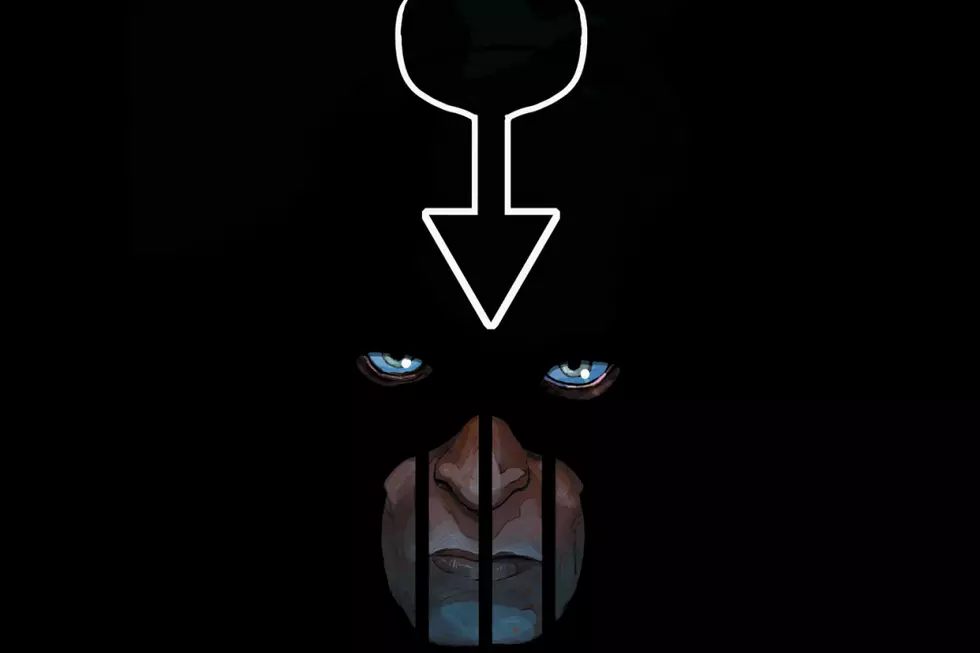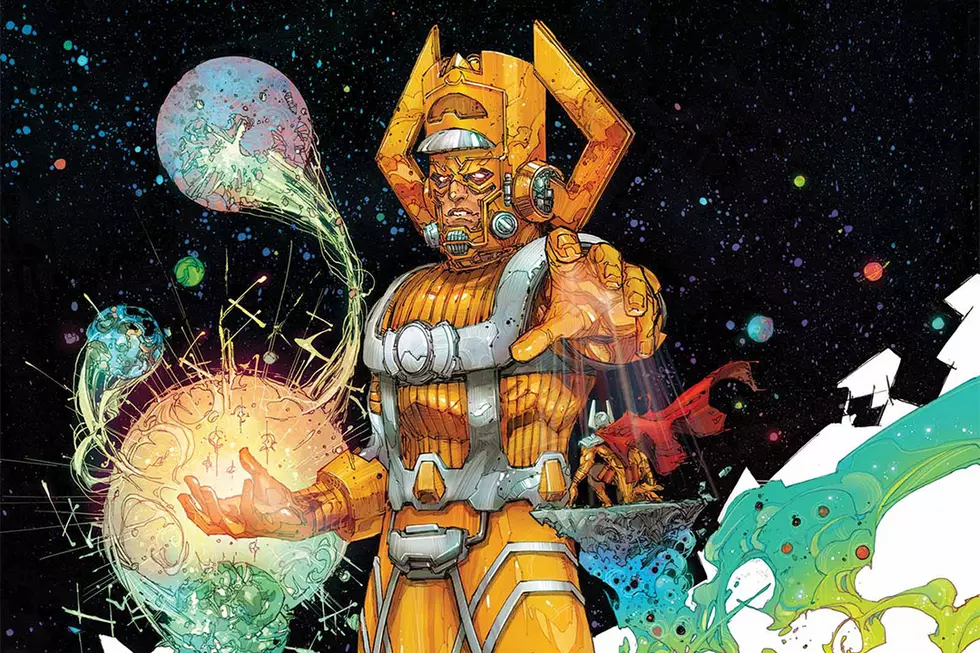![The Infinite Vacation #1: Stunning Possibilities [Review]](http://townsquare.media/site/622/files/2011/01/iv01.jpg?w=980&q=75)
The Infinite Vacation #1: Stunning Possibilities [Review]

The Infinite Vacation is the creator owned series by Nick Spencer and Christian Ward, a story about a technology that allows people to jump into any conceivable life in as an alternate reality version of themselves told through the eyes of a guy whose "just okay" life has led to him obsessively using the service to find a better one.
Spencer's a writer who's exploded into the comics scene over the past year with several creator owned works, including the acclaimed Morning Glories, as well as work for both DC and Marvel, including the ongoing Jimmy Olsen back-up in Action Comics. The Infinite Vacation is his latest series published by Image, It's another book where Spencer's taken a great concept and, teamed with Ward's surreal artwork and layouts, created an impressive finished work.Central to The Infinite Vacation is the idea of a multiverse. You're reading this, so you probably like comics and know what that means, but I'm going to explain it to you anyway. The book is built around the idea that there are an infinite number of parallel universes coexisting at once. In one, a man might be a convicted criminal. In another the same man might be an office worker. In another an army officer, or movie star, or President of the United States. Or the difference between two universes might be something as simple as in one a man's forgotten to buy groceries for dinner and in another he hasn't.
With an infinite number of possibilities, differences can range from the minute to the enormous. It's like the television series Sliders, except it doesn't make you think things like "Oh wait, I kind of remember this show" or "Man, it's a shame John Rhys-Davies can't always be in something as awesome as Indiana Jones or Lord of the Rings" or "I could totally go for some sliders right now." (Fun fact - in the alternate universe where I'm eating sliders right now, I instead made a comparison involving GURPS: Infinite Worlds. Even fewer of you understood it).

Our guide to The Infinite Vacation's vast multiverse is Mark, the book's central character. Through an application downloaded into his mobile phone (an iPhone in everything but name), Mark's able to pay a fee to change his life for the better, with greater improvements incurring greater fees. Mark makes frequent use of the service, averaging about 9.7 changes a day and putting him in the top 20th percentile of U.S. users. Yet no matter what he does he can't seem to buy his way out of boredom.
He also uses the service to take trips into other realities, where rather than taking the place of another Mark he's able to meet and talk things out with other possible versions of himself. His talks with a Mark who left everything to open a surf shop in Hawaii seem more likely to lead to a better life, until that Mark ends up dead. And then more alternate Marks start to die off at an unusually high rate, leaving Mark worried for his own safety.

Both Spencer and Ward's imaginations show off to great effect here. Some of Ward's more intricate designs for layouts are gorgeous, and the full single and double page spreads all have profound impact with little to no text. The Infinite Vacation is a remarkable example of a clever concept wonderfully introduced in its premiere issue.
That said, I did have a few issues with the book. I'll start with the minor one: There are four pages early on that use photographs instead of art to introduce the concept of the multiverse shifting technology in the form of an advertisement. It's not that this is necessarily bad, and it does succeed at giving the book a "one week into the future" feeling that helps make Mark's existence feel less sci-fi. But Ward's artwork throughout the rest of the book is so good that I'm willing to bet his take on those pages would have been more impressive than what's there. Plus they're placed so early in the book that it disrupts the reader becoming accustomed to the book's visual style.

My major concern with The Infinite Vacation is one that I've consistently had with Spencer's works, which is I have trouble rooting for his main characters. His protagonists in books like Forgetless or Jimmy Olsen often come across as primarily driven by a desire to be the coolest or most interesting person around. Mark seems like something of a rich jerk who finds his life boring, so he throws a lot of his money at the problem but can't get away because, no matter what reality he escapes to, he's still himself.
Now, I fully expect that last sentence to be a core message Spencer's going to develop throughout the series. That doesn't make Mark any less of a shallow rich jerk at the moment, though, so even though I love the idea of the book I find myself caring much more about what is happening that I do about who it's happening to. It's such a wonderful concept that I almost hit a point where I resented being walked through it by someone as self-centered and unimaginative as Mark. Infinite possibilities, and the ones he's occupied with involve having a better chance at hitting on a girl in a coffee shop and having something better to eat for dinner.
I know this is probably going to be a book where Mark goes on a journey where he learns something about himself and ends up a better person at the end. But I'd have fewer reservations about the book if I was presented with less of a barrier to identifying with the main character, instead of relating to Mark on the level of "I know a bunch of people like that and I'm not fond of any of them."

Still, those problems aren't enough to stop me from recommending this book. My problems with Mark may very well be a personal hang up that's not going to impact your appreciation of the work at all (although I am curious if others have felt the same way repeatedly with Spencer's characters). And while I have a number of questions as to how exactly the technology's supposed to work, the science behind it isn't significant to what the book's really about. I also suspect we may be getting some interesting answers about the consequences of reality shifting for alternate Marks as the series goes on. The point is, I urge you to take advantage of the fact that you live in a version of reality where The Infinite Vacation is a thought-provoking book that's worth reading.
More From ComicsAlliance






![The Thing’s In A New York State Of Mind In ‘Guardians of the Galaxy’ #15 [Preview]](http://townsquare.media/site/622/files/2016/11/Guardians_of_the_Galaxy_15_Featured.jpg?w=980&q=75)


